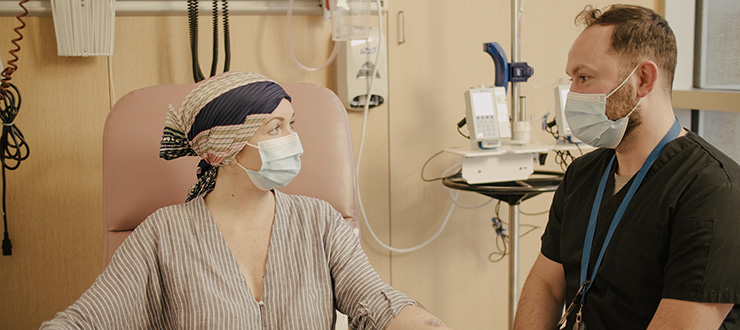
Your throat is dry. Your hands are clammy. Your heart is racing. You’re not about to board a rollercoaster; you’re sitting quietly in your doctor’s office, about to start your appointment.
Talking to your doctor about your health isn’t supposed to feel like this. Yet for many people, it does.
Alicia Hilderley knows first-hand how nerve-wracking it can be to talk to a doctor. Before her cancer diagnosis, she spoke to doctors with confidence in her role as a health-care researcher. But that changed when she became a patient herself.
“I felt very uncertain of myself,” she recalls. “I was nervous to bring up things that were important to me that I wasn’t sure were important to my doctor.”
Incomplete communication could lead to incomplete care
Dr. Erin Keely thinks it’s critical for health-care professionals to help patients like Alicia feel comfortable asking questions and sharing information. She is an endocrinologist at The Ottawa Hospital and a professor at the University of Ottawa.
“If patients don’t feel comfortable talking to us, we might not have the whole picture,” she said. “And if we don’t have the whole picture, we might come to the wrong conclusion, and the diagnosis or the next steps might not be the right ones for the person.”
To Dr. Keely, good communication helps to craft a plan that aligns not just with her patients’ health needs, but also with their individual priorities and values.
“Each person needs to have the confidence to provide input, because their next steps may be different from someone else with exactly the same condition depending on their priorities,” she said. “Plus, We don’t want the visit to end with the person agreeing with a plan that isn’t a good fit for them, and then not following through with the recommendations because it didn’t align with their beliefs, preferences or priorities.”
Tips for talking to your doctor:
From preparing for your appointment, to bringing up taboo topics, Alicia and Dr. Keely share these tips:
Preparing for your appointment
- Think ahead about your goals. Do you want to learn more about your diagnosis? Your medications? What to expect in recovery? Knowing your goals before the appointment begins will help you and your doctor make the most of your time together.
- Write down your questions. Writing them down means you won’t have to rely on your memory in the moment. You may not get through them all in one appointment due to time constraints, so prioritizing and conveying to the doctor what’s most important to you may be helpful.
- Bring a trusted person with you. Whether they are in the room with you or calling in by phone, you can choose to have a trusted person with you during your appointment. They can help support you, remind you of your questions and write down the doctor’s answers.
Sharing information about yourself
- Ask for privacy if you need it. If there are several people in the room and you’d rather ask your doctor a question privately, it’s ok to ask others to leave for a few minutes or ask your doctor to ask them to step out.
- Ask the nurse to ask the doctor a question for you. Nurses tend to spend more time on units, so if you have a private question for your doctor, you can ask the nurse to ask it for you. Alternatively, you can ask the nurse to request one-on-one time with your doctor where you can ask it yourself.
Bringing up potentially “taboo” topics
- Talk about what research you’ve already done. There is lots of great information out there, but there’s also a lot that isn’t so good. By sharing what you’ve learned, you can help your doctor correct any misinformation or explain why that information might not apply to your specific circumstance.
- Tell them if you’ve used non-traditional or alternative options. Mention any non-traditional medicines or therapies you’ve tried such as acupuncture or naturopathy,. There are lots of good options, but some options impact how doctors interpret things like laboratory tests or plan next steps.
- Mention your sexual history. In some circumstances your doctor may need to ask sensitive questions around your sexual history if it affects your most likely diagnosis or the actions you need to take. Please be honest about your history so that your doctor can factor that into your care.
- Disclose if you use alcohol, cannabis or other drugs. Cannabis and other drug use can cause symptoms that mimic other conditions, so be upfront with your doctor about current and past use.
Answering your doctor’s questions
- If you’re not sure why they are asking a question, ask. If their question seems unrelated to your condition or situation, you can say, “Help me understand why you need to know this,” and your doctor will explain.
- If you’re not comfortable answering a question, tell them. A doctor’s appointment shouldn’t feel like an interrogation. It’s ok to say, “I’m not comfortable answering that question right now.”
Finishing your appointment
- If you aren’t sure you were given all of your options, ask. There is often more than one way to proceed. If you want to learn more, you can say, “I heard you say the next steps for me are X. Are there any other options?”
- If you aren’t sure what the next steps are, ask. Try summarizing what the doctor has told you. The doctor can either confirm your understanding or add more information.
- If you’re expecting a follow up, be prepared. If a specialist is supposed to call you next week, have their number so you can call them in case they don’t call. Don’t assume everything is going to happen in the suggested timeframe. It’s important to know who to reach out to if things don’t happen as they should.
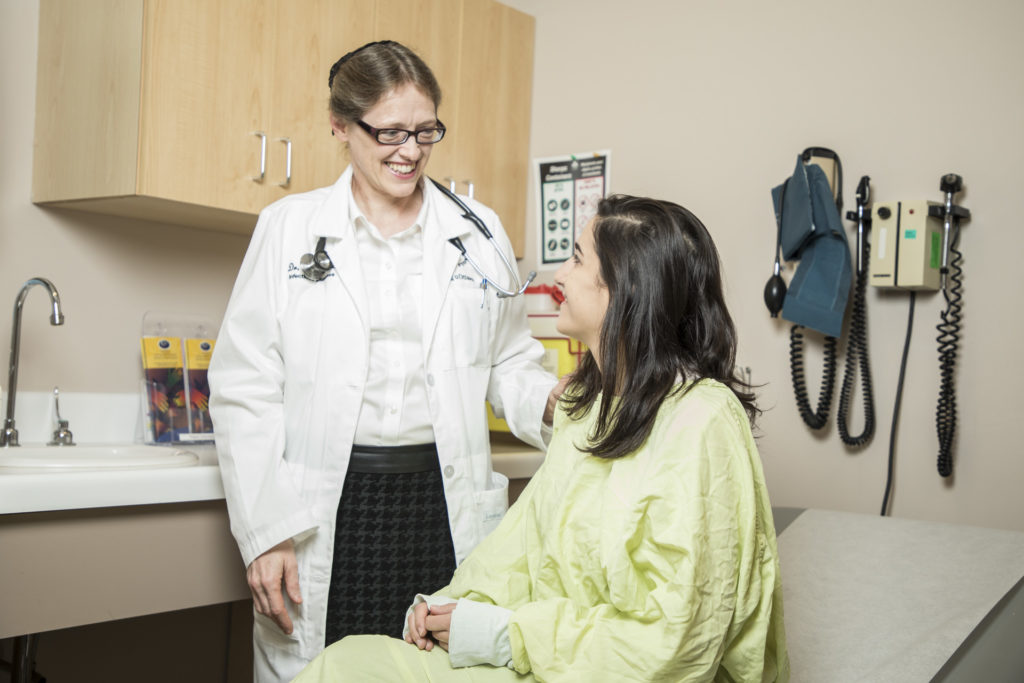
“Share everything”
Alicia sympathizes with people who are afraid to speak up about what matters to them out of fear of being judged, but she says that all of her doctors were compassionate and took her concerns seriously. She gives this advice for people who wonder whether they should bring a concern forward to their doctor: Share everything.
“If it’s important to you, it’ll be important to them, so bring it up,” she says. “Tell them what you’re thinking or feeling so that they have a chance to help.”

Support patient care and research at
The Ottawa Hospital
You might also like…
A volunteer program that taps into the power of music
Studies have shown that music can benefit the body, mind, relationships and community. Musical Moments is a program where volunteers play live music to support positive outcomes for patients, visitors and staff.
We’ve got you covered: The Ottawa Hospital now offers bandages for a variety of skin tones
Whenever you’ve scraped your knee or had your blood drawn, odds are your bandage was the same colour every time. Peach has been the default hue for over a century — but no longer at The Ottawa Hospital.
Patient gifts a piece of home to Indigenous Cancer Program
Inuit patients can now see and hold a piece of their traditional territory in the Windòcàge Room at the General Campus, thanks to an interactive gift donated to The Ottawa Hospital by a cancer patient.
Second Chance: Don’s song for the people who saved his life
Making music has always been a big part of Don’s life, so when the staff and doctors at The Ottawa Hospital saved him from the brink of death, he could think of no better way to thank them.
A land acknowledgement that honours the land and the medicines it provides
Visitors to The Ottawa Hospital are now greeted by a prominent land acknowledgement, which has been installed by the main entrances at each of our three main campuses. It is paired with artwork by Simon Brascoupé and his daughter, Mairi Brascoupé, both from Kitigan Zibi Anishinabeg.
After a life-altering bike crash, this group of volunteers proves that friendship and community are powerful medicine
In September 2021, a visiting professor woke up in our ICU completely alone. He admits that he wouldn’t have made it through the first few months without support. But he didn’t have to, thanks in large part to a group of caring volunteers who came to his side during this difficult time—and have been there ever since.


 To reset, hold the Ctrl key, then press 0.
To reset, hold the Ctrl key, then press 0.
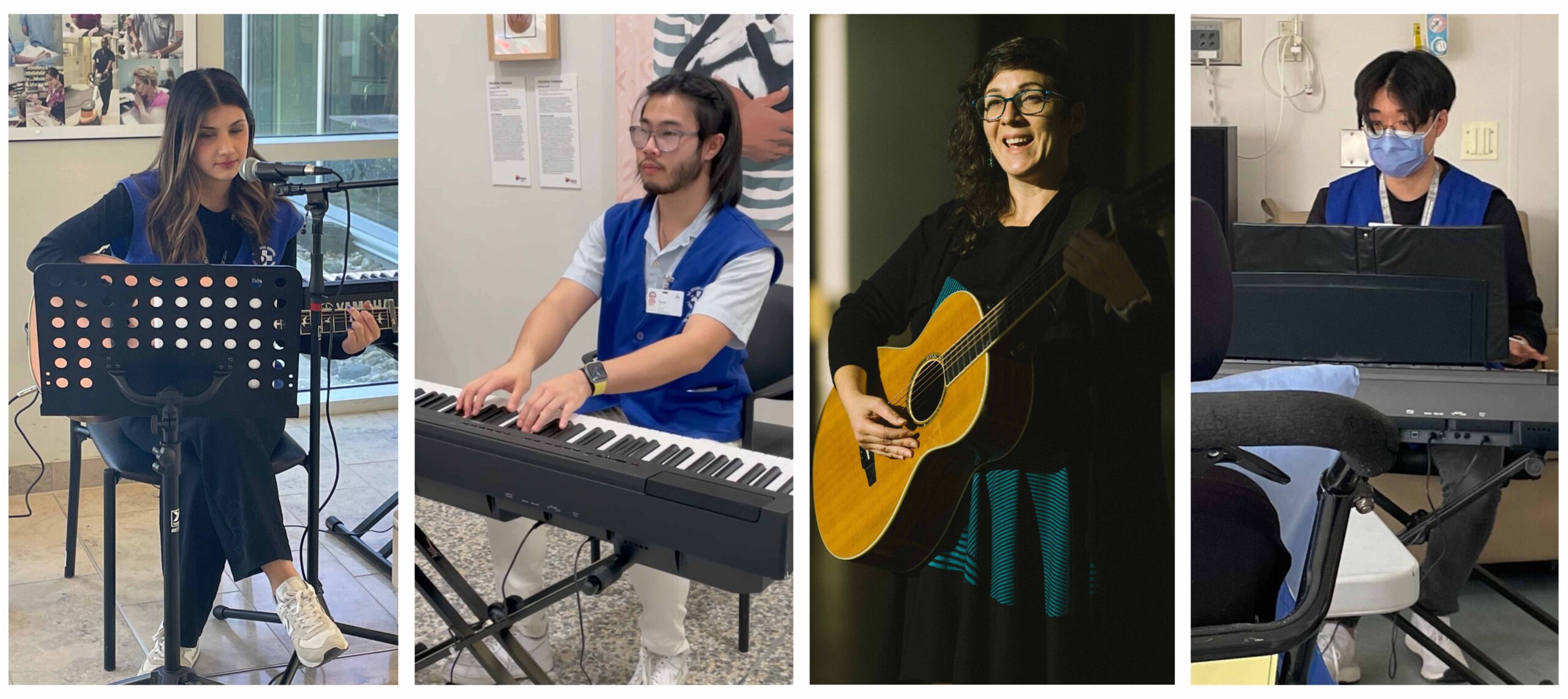
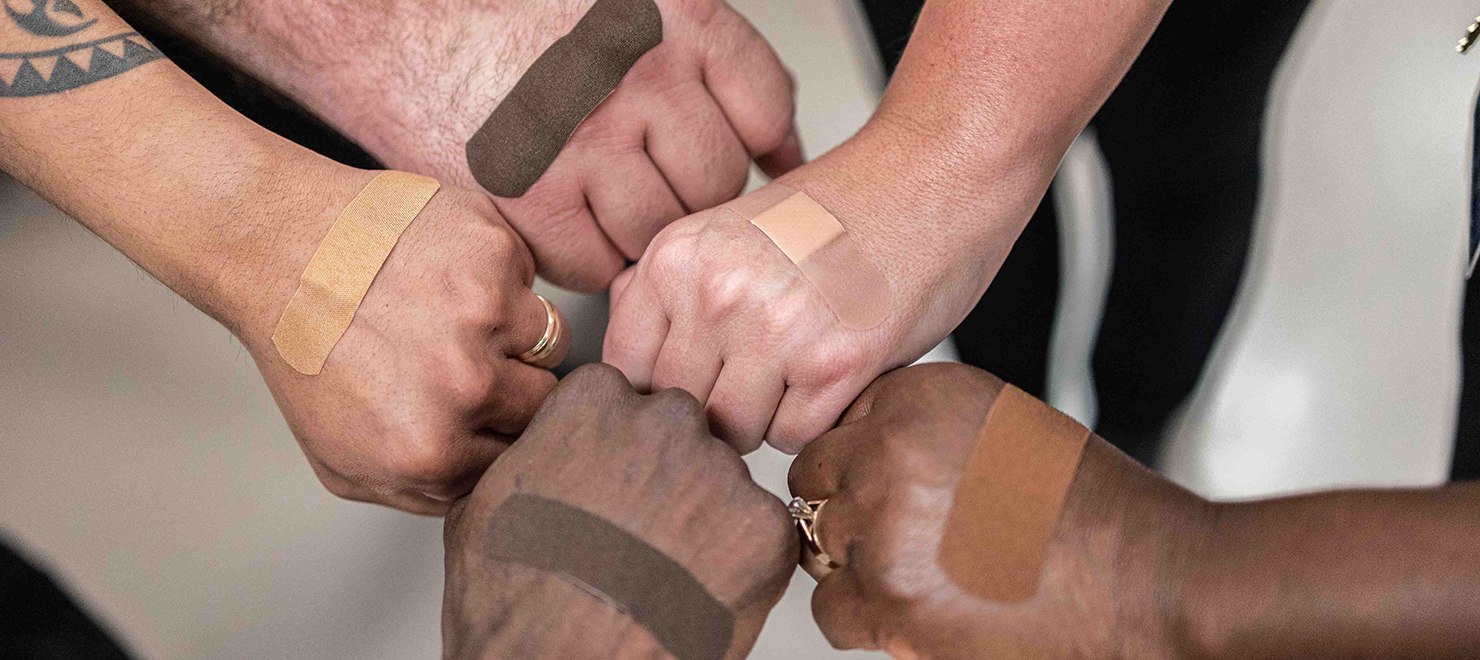

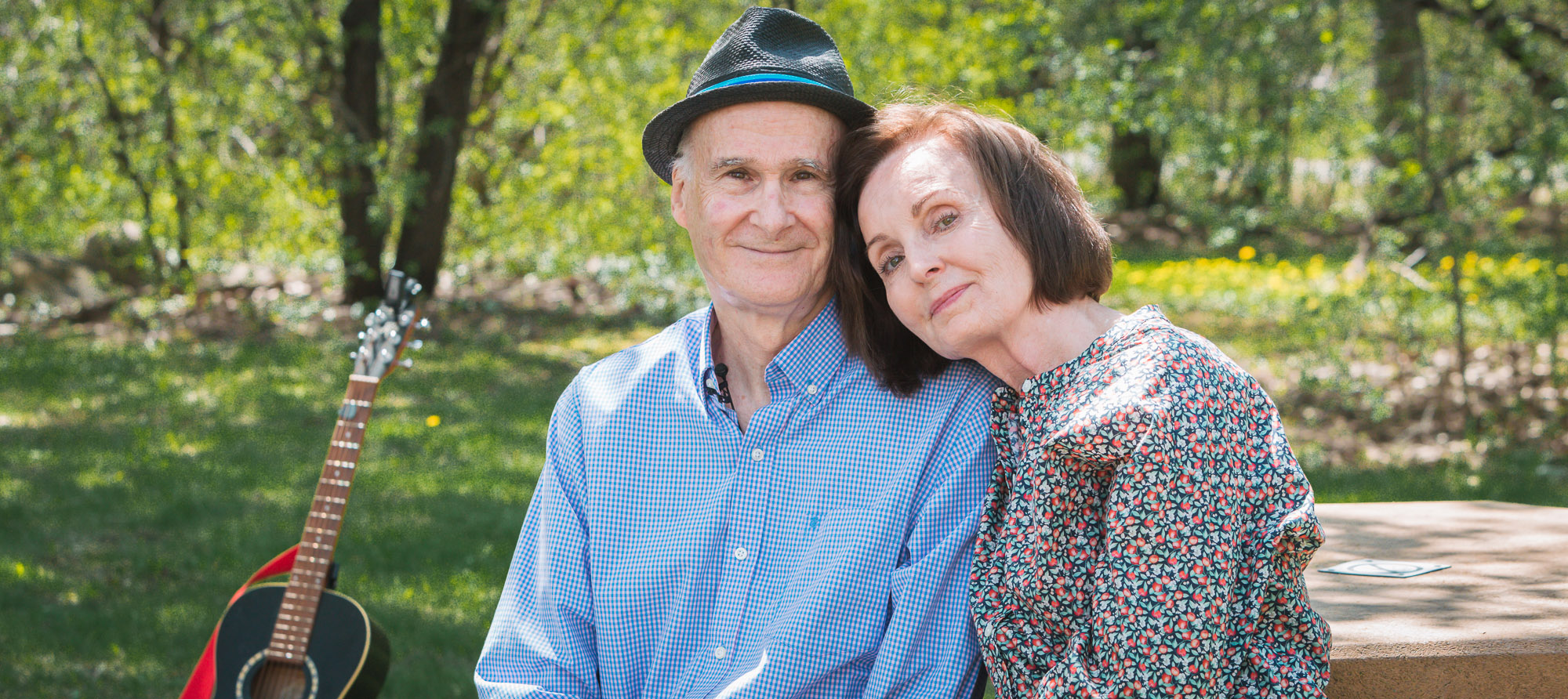


Comment on this post